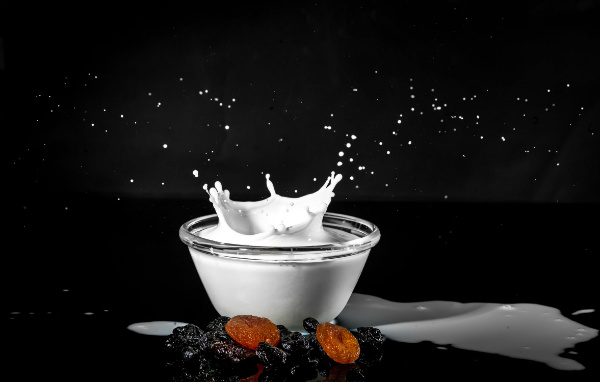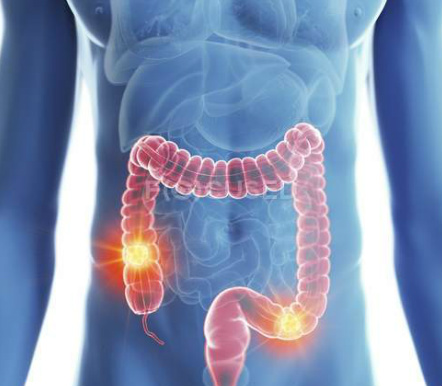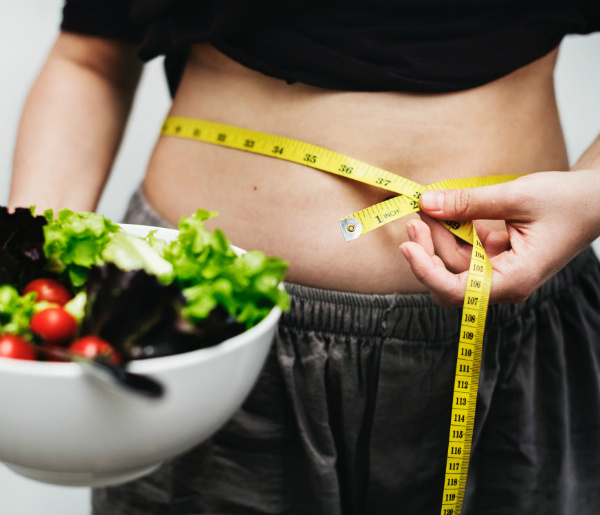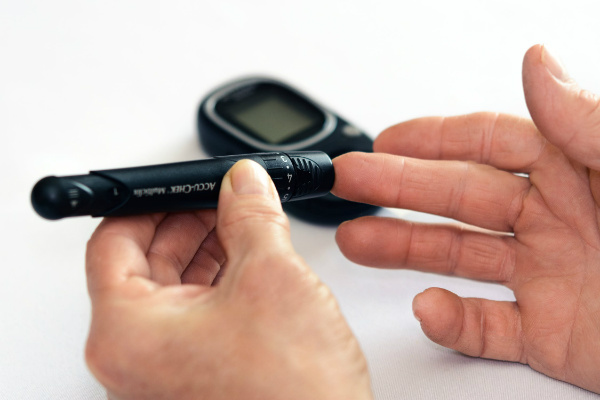Inulin is a starch found in certain foods which has the ability to cleanse your intestines, improve energy levels, reduce the risk of certain diseases while assisting in weight loss.
While many people have heard of probiotics, prebiotics on the other hand (such as inulin) don’t get as much attention as they potentially deserve.
Prebiotics are designed to feed the already existing good bacteria in our intestines. This allows the good bacteria to do their job – which is digesting foods and nutrients needed for cell growth and repair.
In summary, inulin has been shown to help the intestines absorb more of the foods we eat. Thus helping to create a more efficient digestive system, assimilating foods into usable energy for the mitochondria.
Inside this article, I’ll discuss how inulin can help you improve your health and fitness goals.
Table of Contents
The Importance of Having Healthy Gut Bacteria
Have you ever wondered how well your body absorbs the foods you eat, to then be turned into energy? Or how good your body is at breaking down proteins to be converted into amino acids such as leucine for muscle repair? It all starts in the digestive system.
Let’s bypass the mouth and stomach for now. Which play their own separate role in breaking down foods using digestive enzymes and acids. For now, let’s focus solely on our intestines.
Fiber-rich foods and supplements such as inulin support healthy gut bacteria to improve how well we digest our foods and other supplements.
Inulin does this by removing unwanted food from the intestines. To clarify, inulin leaves a clear path for more nutrients to be absorbed. It also feeds the good bacteria, which further strengthens our immune system.
How Much Food Do We Actually Absorb?
After we eat, the food gets broken down into smaller particles inside the intestine. However, the health of the intestine will greatly mitigate the number of nutrients that are assimilated from the foods we eat.
On average, the amount of food we absorb is anywhere between 10-90% depending on the type of food. (01)
If our intestines have been exposed to antibiotics, large amounts of process foods (over many years). Or other elements that cause harm to the gut lining such as the consumption of alcohol. Our percentage of vitamin absorption from the foods we eat greatly diminishes.
To increase our chances of adequate mineral and vitamin absorption, first, our gut needs to be in good shape – that’s where inulin can help.

ProBiotics Vs PreBiotics
Before we move on any further, let’s highlight the difference between probiotics and prebiotics.
The issue with probiotics is, that when you ingest yogurt and milk for example. The acid in the stomach kills a lot of the healthy bacteria – this is where prebiotics come in handy. (02)
For example, instead of adding more bacteria to the existing bacteria within your intestines with yogurt as an example, inulin (a powerful prebiotic) works to enhance the already existing bacteria inside your gut.
Therefore, inulin, which is derived from natural plant sources, gives your gut exactly what it needs to help the already existing bacteria thrive – improving our immune system.
That’s not to say probiotics can’t help us, they certainly can. Products such as yogurt and milk certainly play their role within a well-balanced diet for anyone, not just those who take part in regular exercise.
However, if you’re looking to enhance the ‘good bacteria’ environment of your intestines even further, then I’d suggest looking into using some form of prebiotic a.k.a. inulin. Whether that’s direct from the plant, or in supplement form.

Where can you find Inulin in food?
Inulin is naturally found in many plant forms, it can also be modified into supplements. Here’s a list of some of the main sources of whole food inulin sources. Each food listed below represents 100 grams:
- Asparagus: 2-3 grams.
- Chicory root: 36-48 grams.
- Garlic: 9-16 grams.
- Jerusalem artichoke: 16-20 grams.
- Jicama: 10-13 grams.
- Onions: 1-8 grams.
- Yacon root: 7-8 grams
Manufactured Sources of Inulin
You can find inulin in specially formed prebiotic supplements, and other supplements such as protein bars, yogurt, and fortified cereals. Here’s a list of some of the most common forms of inulin in supplement form. (03)
- Oligofructose: This is made by removing the longer molecules from inulin.
- HP: High-performance (HP) inulin. This is made by removing the shorter molecules from inulin.
- FOS: Fructooligosaccharides (FOS) consist of short inulin molecules, which are then synthesized from table sugar.

How Inulin Works – An Improved Digestive System
Inulin works just like most plant fibers. It passes through the digestive tract, removing food wastage along the way.
The increased fiber content in the intestines helps to cleanse the digestive system, which leaves room for more nutrients to be absorbed from the foods we eat, and or supplements we take.
Inside the gut, we have something called ‘gut microbiota’ which is the main type of bacteria inside the gut, along with other important microbes. These microbes and microbiota are responsible for breaking down and delivering foods into the bloodstream.
Inside the gut, we have good bacteria and bad bacteria. Getting the balance right is crucial for our physical and mental health. Poor mental health has been associated with an imbalance in gut bacteria. (04)
“The gut microbiota is essential to human health and the immune system and plays a major role in the bidirectional communication between the gut and the brain.” (05)
Inulin has been shown to create the balance needed to fight off diseases – forming a healthy gut environment.
It’s the role of inulin to feed the good bacteria, allowing them to multiply, which in turn creates an optimal environment for overall health and the assimilation of nutrients from foods. (06)
Reduced Risk of Colon Cancer
Eating a diet that contains plenty of fiber is important for not only weight loss and satiation. But, it’s also been shown to reduce the risk of colon cancer.
When researches analyzed 12 animal studies on the effects of inulin and colon growths, they saw an 88% reduction in cancer colon formation – all thanks to inulin. (07)
As for human studies, those who supplemented with inulin created an environment in the colon that was less susceptible to colon cancer development. (08)
Furthermore, a number of smaller studies has shown that by using inulin, there are possibilities it can reduce the symptoms of ulcerative colitis, along with reducing inflammatory markers associated with Crohn’s disease. (09)
Eases Constipation
As inulin is a natural source of fiber, it may help people who suffer from digestive issues. Adding fiber to the diet is one way to relieve constipation.
A study which took adults who were experiencing digestive issues, and gave them inulin for 4 weeks saw an improvement in bowel movements. (10). Inulin was given to adults who had been experiencing difficulties in their digestion, found their symptoms improved after using inulin. (11)

Assists In Weight Loss
The benefits of adding more fiber to the diet go way beyond health improvements such as reduced constipation with an increased gut flora – studies show that using inulin can also assist in weight loss. (12)
The Study:
For instance, a study which gave overweight participants 21 grams of inulin per day, showed a decrease in the hunger hormone ghrelin. Not only that, their fullness hormones increased (leptin) as a result of using inulin. (13)
The results of using inulin to assist in weight loss were surprising overall, people who used inulin within the study lost over 2 lbs (0.9 kg) while the controlled (non-inulin group) gained lb (0.45 kg) during the 12-week trial. (14)
While the results show positive for adults who were overweight, the same cannot be said for one study which used oligofructose and inulin on obese children. Thus highlighting inulin as a possible aid in weight loss for adults, but potentially, not so much for children. (15)
Helps control diabetes
Using inulin may suggest that people who are diabetics, or pre-diabetics, could see improvements in their blood sugar control. (16) HP high-performance inulin showed that it decreased fat in the liver of pre-diabetics in one study. (17)
The theory goes, that if a reduction of fat mass on the liver can be achieved, then, the more insulin resistant you’ll become – potentially reducing type 2 diabetes. (18)
Being more insulin resistant is also helpful for weight control. In addition, those who consume large amounts of carbohydrates for exercise will also benefit from being more insulin resistant. The more insulin resistant you are, the more you’ll be able to utilize glucose for energy and not fat storage.

The Study:
A group of women with type 2 diabetes were given 10 grams of HP inulin per day. Their fasting blood sugar levels showed a significant decrease – on average by 8.5%.
Furthermore, their hemoglobin A1c, which is a measure for long-term blood sugar control fell by 10.5% on average. In other words, this highlights the potential benefits of inulin supplementation for blood sugar control. (19)
Furthermore, although HP inulin has been shown to benefit diabetes and prediabetes, results from studies using some other types are less consistent (20)
Creates A Healthy Heart
A study which took women and gave them 10 grams of HP inulin for 8 weeks saw decreases in blood triglycerides and also, their LDL cholesterol. (21)
Improves Food Absorption
Mineral and nutrient absorption is key to improving our health. Above all, if we cannot properly absorb the foods we eat or the supplements we take then we’ll be at risk of developing nutrient deficiencies.
Studies done with young men found that calcium absorption along with bone mineralization improved when taking inulin. (22)
Are There Any Side Effects?
Side effects, when taken in dosages of up to 10 grams per day may result in bloating, gas, stomach discomfort to name a few. As insulin is derived from natural food sources, it’s safe to say that it may not cause issues for most people.
If you feel that you may have any food allergies, or sensitivities to a high fiber diet, speak to your doctor before using inulin, or any type of probiotic supplement to avoid side effects.

Dosage
As previously discusses, inulin is safe for most people. However, to test your tolerance, it’s best to start off with smaller doses of 2-3 grams per day for the first week.
Then, as you’ll begin to see and feel how it reacts with your stomach, you can either increase or decrease as necessary. However, avoid going over the recommended 5-10 grams per day to avoid discomfort.
As you continue to use inulin, the side effects (if any) should subside once your body gest used to the added fiber.
Is Inulin For You?
To summarise, why is it important to have a healthy gut bacteria? Well, you may have heard the saying ‘the gut is a second brain’ and that saying couldn’t be closer to the truth.
There are many neurological connections which are associated to what happens inside your gut and the brain. Studies are now demonstrating that some mild cases of depression may be linked to the lack of certain gut bacteria. (23)
Furthermore, having healthy gut bacteria can help to assimilate more nutrients from the foods we eat, along with the supplements we use.
For example, when you consider that as little as 10% of the food we digest are converted into vitamins and amino acids. It makes sense then, that there’s an increasing amount of deficiencies becoming more apparent worldwide, as fast food and processed foods are becoming more popular – reducing our gut health.
If we can increase our gut bacteria, and overall gut health, we’re more likely to absorb more of the foods we eat. This, in turn, will heal our muscles after exercise, reducing our recovery time.
Conclusion
Inulin is produced by many types of plants, but the more commonly known form of inulin is derived from the chicory plant. Inulin belongs to a class of dietary fibers known as fructans, associated with their gut healing benefits. (24)
For instance, inulin is a form of fiber, which helps to pull unwanted debris from the stomach lining allowing for easier digestion, creating a clear channel for new foods to be absorbed.
When inulin arrives at the lower gut, it functions as a prebiotic or food source for the bacteria that already live within your gut – thus improving our immune system.
In other words, your already existing gut bacteria convert inulin into short chain fatty acids. When inside your intestines, it supports colon cells, providing overall health benefits. (25)
Resources:
(01) Improving Nutrient Absorption: What You Need to Know. (source)
(02) Probiotics and Stomach Acid. (source)
(03) Inulin and oligofructose: what are they? (source)
(04) Gut microbiota in health and disease. (source)
(05) The Gut-Brain Axis: The Missing Link in Depression. (source)
(06) The bifidogenic effect of inulin and oligofructose and its consequences for gut health. (source)
(07) Inulin-type fructans and reduction in colon cancer risk: review of experimental and human data. (source)
(08) Effects of a 3-mo consumption of short-chain fructo-oligosaccharides on parameters of colorectal carcinogenesis in patients with or without small or large colorectal adenomas. (source)
(09) Oral oligofructose-enriched inulin supplementation in acute ulcerative colitis is well tolerated and associated with lowered faecal calprotectin. (source)
(10) Effectiveness of inulin intake on indicators of chronic constipation; a meta-analysis of controlled randomized clinical trials. (source)
(11) Effects of chicory inulin in constipated elderly people: a double-blind controlled trial. (source)
(12) Differential effects of two fermentable carbohydrates on central appetite regulation and body composition. (source)
(13) Weight loss during oligofructose supplementation is associated with decreased ghrelin and increased peptide YY in overweight and obese adults. (source)
(14) A randomized controlled trial: the effect of inulin on weight management and ectopic fat in subjects with prediabetes. (source)
(15) Effects of inulin-type fructans on appetite, energy intake, and body weight in children and adults: systematic review of randomized controlled trials. (source)
(16) A randomized controlled trial: the effect of inulin on weight management and ectopic fat in subjects with prediabetes. (source)
(17) A randomized controlled trial: the effect of inulin on weight management and ectopic fat in subjects with prediabetes. (source)
(18) Reversal of type 2 diabetes: normalisation of beta cell function in association with decreased pancreas and liver triacylglycerol.
(source)
(19) Effects of high performance inulin supplementation on glycemic status and lipid profile in women with type 2 diabetes: a randomized, placebo-controlled clinical trial. (source)
(20) Effects of fructo-oligosaccharides on blood glucose and serum lipids in diabetic subjects.
(source)
(21) Effects of high performance inulin supplementation on glycemic status and lipid profile in women with type 2 diabetes: a randomized, placebo-controlled clinical trial. (source)
(22) Non-digestible oligosaccharides and calcium absorption in girls with adequate calcium intakes. (source)
(23) The Gut-Brain Axis: The Missing Link in Depression. (source)
(24) Implication of Fructans in Health: Immunomodulatory and Antioxidant Mechanisms. (source)
(25) The bifidogenic effect of inulin and oligofructose and its consequences for gut health. (source)

Leave a Reply